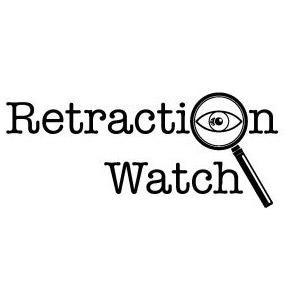
In August 2020, Retraction Watch will turn 10 — a milestone we still can’t quite wrap our minds around. When we started the blog in 2010, we thought we might have enough material for a post or two a month. Little did we know that our little side gig would eventually lead to the world’s largest database of retracted papers; or that there would be so many of them (now more than 1,400 per year); or, to be honest, how little we (and others) knew about these events.
This year saw several important developments for our project. We entered into a partnership with Zotero that allows them to alert users to retractions of any papers in their personal libraries — and, we hope, helps researchers to better avoid citing retracted papers in their work. Our database now includes more than 20,000 retractions.
We of course continued to cover retractions, breaking stories that frequently led to follow-ups by news outlets including ABC Australia and The Hindu. Reporters from many outlets — The Los Angeles Times, RTS (Switzerland), and USA Today, among others — sought us out for comment.
One of the year’s big stories — a $112.5 million settlement between Duke University and the U.S. federal government — was the culmination of a tale we’d been covering for six years. You can read about the year’s top retractions here.
But this post isn’t about what we’ve accomplished in the past decade. Instead, we’d like to gather your ideas on what we should aim for in the decade to come. What else, besides tracking retractions, should our team address? What corners of science ethics, scholarly publishing, research misconduct, and related topics have we (and others) neglected? What tools do researchers and journalists who care about these issues currently lack?
Thank you, as always, dear readers, for sticking with us, for your story ideas, critiques, and suggestions. We would be remiss if we did not ask you to let anyone you know who might want to support our work that such contributions are tax-deductible, and that if they use this link, PayPal doesn’t charge us any fees. We can also accept donations through Crowdrise, and by check made out to The Center For Scientific Integrity and sent to 121 W. 36th St., #209, New York, NY 10018.
All best in 2020.
Next to warning people that a paper has been retracted (in Zotero), it would also be useful to warn people of papers that cite retracted works. So that people can have a look whether that matters.
The Open Citations organization now has 13,964,148 citation links from 326,743 citing bibliographic resources. https://opencitations.net
I would like to have support regarding reporting research misconduct! An NGO should be established or should become in charge for reporting cases of suspected research misconduct. This NGO should communicate with funders, journals and universities on persons’ behalf or together with those persons, who want to report misconduct.
It would be useful to discuss with someone and ask for advice, how one should proceed during a research misconduct procedure. I would like to know, if a complaint by me is justified in their opinion. I think, that when an NGO was on one’s side, one would be taken more seriously by universities, funders and journals. Besides I speculate, that more persons would report research misconduct cases, if there was support available. BTW, I once had reported a case to a university and two funders, but I hadn’t received any plausible responses.: The universitiy had been biased in my opinion and the funders curiously had been uninterested! I speculate, that with support by an NGO, it would have been different.
As a side note, the paper had been published in a journal, which isn’t a COPE member.
I look forward to RetractionWatch ceasing to use URLs with http: such as
https://t.co/JOK7Pb7JeM?amp=1
which redirects to
http://retractiondatabase.org/RetractionSearch.aspx#?jou%3dPLoS%2bOne
Modern browsers refuse to serve old, unsecure http protocol web pages for security reasons. Servers can have server-side redirects implemented to reroute such old URLs, or the old URLs get changed within the web pages still having them.
If I try
https://retractiondatabase.org/
I see “HTTP Error 404. The requested resource is not found.”
I look forward to the day I can access the Retraction Watch database routinely once again! At present, luckily I still have an old PC running an old version of Internet Explorer that will serve http URLs. What could go wrong?